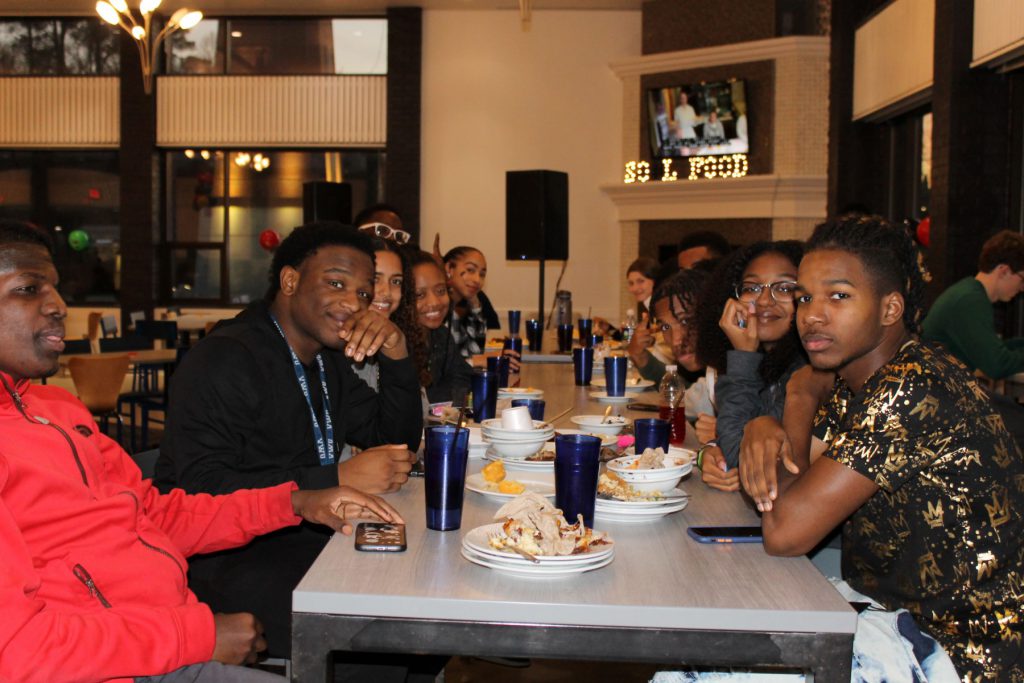Virginia Wesleyan University has been awarded the recognition of Sustained Distinguished Performance River Star Business by the Elizabeth River project. The ERP launched the River Star Business program in 1997 to recognize efforts to reduce pollution and preserve natural environments. Each year, recipients are awarded their status at a banquet: Commitment, Achievement or Model. Each level signifies a different accomplishment and level of partnership with the ERP. This year, levels were awarded virtually, and the level reached by VWU this year is indicative of a facility that has demonstrated continuous efforts and support for the ERP.
The ERP website lists the criteria for obtaining each level: for Commitment level, a facility must “document significant achievement in either pollution prevention or wildlife habitat enhancement.” Achievement level must document both. A Model level facility must document both so exceptionally well that they are considered a standard that other facilities should look up to.
Pam Boatwright, program manager for the ERP, prepares everything for committee meetings and helps facilities find projects or initiatives to achieve their desired level of recognition or sustainability. She states that these recognition levels inspire businesses and other facilities to take initiative in helping preserve the Elizabeth River. Boatwright points out Marlin Meadows as the perfect example of partnership in a project the ERP would commend; Norfolk Botanical Gardens, Marlins Go Green and the ERP worked together to create the interactive meadow in front of Greer.
VWU began its partnership with the ERP in 2016, eventually attaining the highest recognition this year. Other such recipients include organizations such as Hampton Roads Transit, Nauticus, Naval Station Norfolk, and the Virginia Zoo.
President Miller attributes much of VWU’s success to its, “300-acre park-like campus—with extensive teaching gardens, wetlands and a green roof, along with the environmentally-themed Batten Honors College and the award-winning Greer Environmental Sciences Center.” He gave particular thanks to Dr. William Gibson and Dr. Elizabeth Malcolm for their efforts in helping attain this recognition.
Senior Phoebe Murell worked for the Elizabeth River Project before attending VWU, and the school’s status as a partner solidified her decision. She also helps the Sustainability Council on campus, which aims to get students involved in efforts to keep the campus environmentally friendly through various activities and events.
“I am incredibly proud to attend here because of our environmental efforts,” Murell said. “With our large environmental program, I know programs like this are a draw for other students as well. However, our Sustainability Council doesn’t do its work to attract applicants–it does it because it cares!”
Murell has worked with the Sustainability Council on projects such as installing a rain garden in Marlin Meadows, preparing the plant beds in December 2019, and even initiating a “Sustainability Cord” for graduates, made from natural cotton and dyed with onion peels. The Sustainability Council encourages student participation in similar initiatives in order to keep the campus environmentally friendly and maintain the relationship with the ERP.
“This is something you can take with you no matter what field you go into,” Murell said. “People appreciate being told they’re doing a good job, and the success of the River Star Business program is evidence of that.”
The ERP was formed after the Elizabeth River was identified as one of the most polluted rivers in the Chesapeake Bay, once even presumed ‘dead,’ or incapable of sustaining any form of life. The ERP website, elizabethriver.org, explains that they are, “one of the first environmental groups to use a social impact model,” to combat these challenges. Through education and restoration projects, the ERP has helped the river make a “dramatic recovery” that continues to this very day.
In the ERP 2020 scorecard, the river scored a ‘C’ overall, with each of its branches staying the same or improving since 2014. Grades are given based on levels of bacteria, bottom health, cancer rates in fish, water clarity and more. The biggest challenge to maintaining this progress is the more frequent rainfall due to climate change. The scorecard also reports on swimming precautions, news in wildlife, the diminished effects of toxic substances and other subjects concerning the river’s various branches.
Boatwright hopes that students see schools and businesses enacting projects that serve to benefit the environment, and that they are inspired to take similar initiatives in their lives, whether at work, at school or at home. Individuals wanting to contribute can join as dues-paying members or a volunteer.
Will Farkas
scfarkas@vwu.edu


